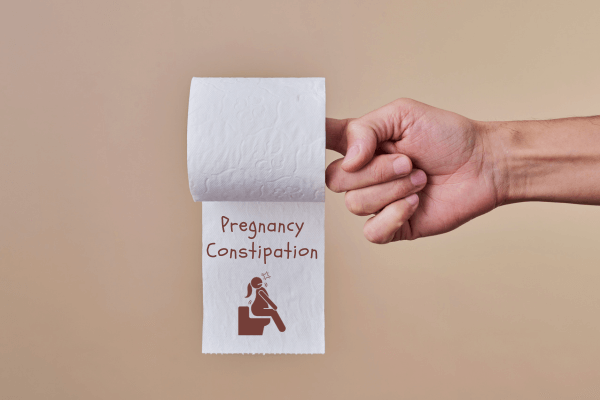Key Points
- Causes of Thrush: Pregnancy-related hormonal changes and weakened immune system can increase susceptibility to thrush, a Candida fungal infection.
- Symptoms: Includes itching, burning sensation, discomfort, and unusual discharge in the vaginal area.
- Diagnosis and Treatment: Consult a doctor for diagnosis. Consultation could include physical examination and tests, with treatments often involving pregnancy safe antifungal medications.
- Prevention Strategies: Wear breathable cotton underwear, avoid scented products, maintain good hygiene, stay hydrated, and follow a balanced diet.
- Seeking Professional Help: This is especially important if symptoms persist, severe discomfort occurs, or if there are additional concerns like fever or ineffective treatment.
What Causes Thrush During Pregnancy?
Thrush is a fungal infection caused by the yeast Candida. Pregnancy brings significant changes to your body, some of which can make it easier for thrush to develop and make pregnant women twice as susceptible. The increased estrogen levels during pregnancy cause elevated sugar levels in the vaginal area which provides a favourable environment to thrush. A weakened immune system during pregnancy nudges it along even more. Pregnant individuals with diabetes or those taking antibiotics may be at a higher risk.
In breastfeeding women, thrush can affect the breasts and nipples, and impact the baby’s mouth or bottom.
Thrush is uncomfortable and could be painful, but it doesn’t cause long term harm to the mother or the baby. Yet understanding the causes and symptoms, knowing when to seek timely treatment and learning ways to prevent and manage thrush can help in preventing a lot of pain and discomfort that comes from the condition.
Also Read- Breastfeeding Positions: Which is the Best for You and Your Baby?
Common Symptoms of Thrush During Pregnancy
Recognizing the symptoms of thrush during pregnancy is the first step towards addressing this condition. These common signs can help you identify when thrush may be a concern:
- Itching: An intense itching sensation in and around the vaginal area can be a key indicator of thrush.
- Burning Sensation: Some women experience a burning or stinging feeling especially during urination.
- Discomfort: Thrush can lead to a general discomfort in the vaginal region. It can also cause red, cracked and inflamed skin on your vagina and vulva
- Unusual Discharge: A noticeable change in vaginal discharge, often resembling cottage cheese in texture, is a typical sign of thrush.
- Pain during sex.
Understanding these symptoms is vital because early recognition allows for prompt treatment, ensuring your comfort during pregnancy.
Also Read- Early Signs of Pregnancy
When is Thrush Most Common During Pregnancy?
One of the common reasons for thrush during pregnancy is the elevated estrogen levels, which promote yeast growth. While it can occur at any time during the pregnancy, it often occurs in the second trimester and third trimester when changes in estrogen levels are more pronounced. While thrush itself is generally not harmful to your unborn baby, it can cause significant discomfort and disrupt your daily life. It’s crucial to address thrush promptly, not only to alleviate discomfort but also to prevent it from becoming more severe. Early intervention ensures your comfort throughout your pregnancy journey.
Also Read- What is Preeclampsia? Diagnosis & treatment
Diagnosing and Treating Thrush During Pregnancy
If you suspect thrush during your pregnancy, it’s important to follow these steps for diagnosis and treatment to ensure your health and comfort:
- Consult Your Doctor: The first and most crucial step for diagnosis and treatment.
- Physical Examination: A thorough check by your doctor to assess symptoms.
- Possible Tests: Swabs or cultures to confirm thrush, if necessary.
- Thrush Test Procedure: A cotton swab is gently inserted into the vagina to collect a discharge sample. Many doctors use a speculum to open the cervix, facilitating sample collection. The collected sample is then sent to a lab for testing. While generally not painful, the procedure may cause some discomfort but poses no harm to your baby.
- Treatment Options: Oral tablets for thrush are generally not recommended during pregnancy. Your doctor may recommend a pregnancy-safe anti-fungal cream for thrush, to be used for at least 7 days. Ensure proper hand hygiene (hand-washing with soap) before and after application. In some cases, a vaginal pessary may also be prescribed.
- Guidance and Care: Follow the guidance and recommendations from your doctor to manage the condition and prevent recurrence.
Preventing and Managing Thrush During Pregnancy
Maintaining good hygiene and a balanced diet is crucial for both preventing and managing thrush during pregnancy:
- Opt for Breathable Cotton Underwear and loose clothes: This helps reduce trapped moisture on the skin and creates a less favorable environment for thrush.
- Avoid Scented Products: Stick to unscented, emollient soaps and feminine products to maintain natural vaginal flora. Avoid perfumed panty liners and sanitary pads and change them often.
- Maintain Good Hygiene: Gently wash the genital area with mild, unscented soap and water. Avoid douching. Pat your vagina and vulva dry with a clean towel after washing. Change out of damp or sweaty swimwear and sport clothes as soon as possible. Wipe front to back after using the toilet.
- Stay Hydrated and Eat Well: Drinking plenty of water and eating a balanced diet rich in nutrients supports overall health and can help your body defend against infections.
- Consider Natural Remedies: Alongside medical advice, simple remedies like oral hygiene, saltwater rinses, and consuming probiotics in yogurt can be beneficial.
- Avoid very hot tubs and baths
- Manage your sugar levels especially if you have diabetes or gestational diabetes.
When to Seek Professional Help?
While home remedies and self-care can be helpful, it’s crucial to recognize when it’s time to reach out to your doctor or medical expert. Here are some signs that indicate you should seek professional assistance:
- Persistent Symptoms: If your thrush symptoms persist or worsen despite home remedies and self-care, it’s time to consult a medical expert.
- Severe Discomfort: If you experience severe discomfort, pain, or any unusual symptoms, it’s essential to seek professional guidance.
- Fever or Chills: The presence of a fever, chills, or flu-like symptoms may indicate a more severe infection and should prompt a call to your doctor.
- Pregnancy Concerns: If you have specific concerns related to thrush during pregnancy, such as its potential impact on your baby or any other worries, discussing them with a medical expert will provide reassurance and comfort.
- Ineffective Treatment: If the treatment prescribed by your doctor doesn’t seem to be working as expected, it’s essential to report this to your doctor promptly.
Takeaways
- Thrush during pregnancy is common and manageable.
- Recognizing the symptoms and seeking prompt treatment is essential.
- Preventing thrush through good hygiene practices is key.
- Consult your doctor for proper diagnosis and treatment.
- Natural remedies can complement medical treatment but should be used cautiously.
Thrush during pregnancy may be uncomfortable, but it’s a manageable condition. By understanding the symptoms and following preventive measures, you can maintain your comfort and ensure a smooth pregnancy journey. Always consult your medical expert for personalized guidance and support. Remember, you’re not alone, and there are solutions to help you through this phase of your pregnancy.
Choose Veira Life: Your Partner for a Healthy Pregnancy
Veira Life is here to be your partner through every step, offering support, guidance, and resources tailored for your pregnancy journey. Join us at Veira Life for a healthy, informed, and supported pregnancy experience. Register with us and secure for yourself a dedicated team that will walk by your side throughout your motherhood journey.
References
FAQs
Symptoms of vaginal thrush include Intense itching, burning, discomfort in vaginal area, and cottage cheese-like discharge.
Thrush doesn’t usually affect the baby in the womb during pregnancy but may be passed during delivery.
Reduce sugary foods, refined carbs, and yeast-containing products like bread and beer.







